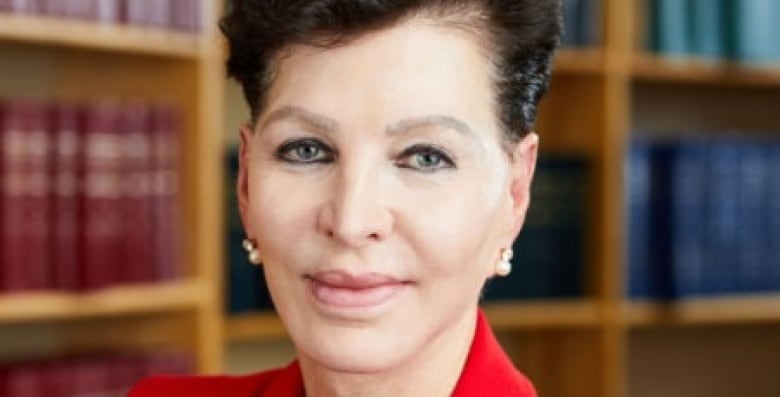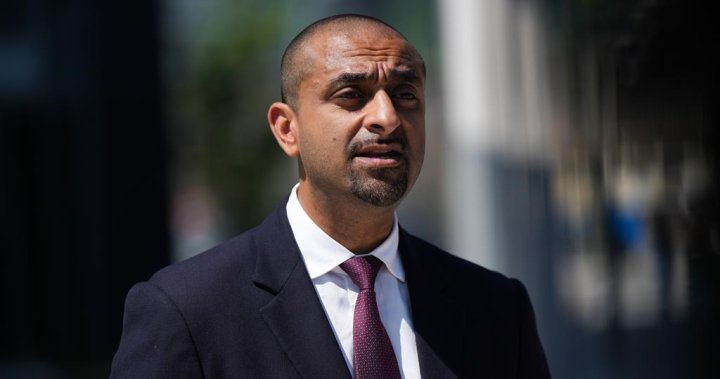As the mining industry heats up in northwestern Ontario, a First Nation in Treaty 9 territory has applied for an injunction to stop mineral exploration and protect a sacred area within their traditional territory.
It’s a case that some say would set a precedent in Canada, establishing the inherent and treaty right of First Nations to protect sacred areas.
Ginoogaming First Nation considers Wiisinin Zaahgi’igan, an area of land roughly 360 square kilometres in size located about 300 kilometres northeast of Thunder Bay, its “breadbasket, its church, its heartland, its graveyard and its hospital,” according to documents filed by their lawyers.
Since time immemorial, the people of Ginoogaming have hunted, gathered, performed ceremony, buried ancestors and healed in the territory; but mining exploration activities threaten the area, said Victor Chapais, a councillor and former chief of Ginoogaming.
“If somebody comes in and destroys Wiisinin Zaahgi’igan, it’ll never be the same. There will always be damage to it — damage to Mother Earth — and those are the kind of things that we’re trying to protect,” Chapais told CBC News in an interview.
The injunction, filed with the Ontario Superior Court of Justice, seeks to prevent two companies from carrying out mineral exploration activities in Wiisinin Zaahgi’igan, and argues the province failed in its constitutional duty to consult and accommodate.
The application for injunction comes as Ginoogaming continues negotiations with the federal and provincial governments about the size of their reserve, under the treaty land entitlement (TLE) process.
‘No one ever told us’
But the province and at least one company named in the injunction have hit back, arguing it is the First Nation that has not participated meaningfully in consultation processes, according to written submissions.
“In the 40 years I’ve been here, no one ever told us that where we were working on our claims was a sacred area,” said Michael Malouf, president of Hardrock Extension Inc., one of the companies named by Ginoogaming’s application for injunction.
The company has a permit to conduct mineral exploration in a property near Greenstone, about 24 kilometres long by three kilometres wide, with about one-third of that property inside the Wiisinin Zaahgi’igan sacred area, Malouf told CBC News in an interview.
Malouf said he’s invested roughly $7 million into exploring the property over several decades and believes there could “theoretically” be up to 64 million ounces of gold in the area.
“If the injunction is granted, we won’t be able to do any work on the property until their [TLE] court case is resolved. But the problem is these Aboriginal court cases can take years, even decades to be resolved.”
If somebody comes in and destroys Wiisinin Zaahgi’igan, it’ll never be the same.– Victor Chapais, former chief and current councillor for Ginoogaming First Nation
Asked what is at stake if the injunction is granted, Malouf said: “it’ll be a real detriment to exploration in Ontario because there’ll be no security of tenure. The contract you have with the Mining Act of Ontario won’t carry any weight.”
Malouf received an exploration permit for the area in June 2019, and it was not until after the permit was granted that Ginoogaming First Nation raised objections, according to written submissions from the Crown’s lawyers.
The province had previously sent four letters to Ginoogaming over the course of a year providing notice of Malouf’s application for the permit, and did not receive a response to any of the letters, according to the submissions.
The documents add that provincial regulators sought more information about the sacred area from the First Nation and looked to address potential impacts, but Ginoogaming “told Ontario that no mineral exploration could occur in [Wiisinin Zaahgi’igan].”
Potentially precedent-setting case: lawyer
But according to legal documents filed by lawyers for Ginoogaming, the First Nation said it had informed the Ontario government “repeatedly” about the need to protect Wiisinin Zaahgi’igan, since at least 2015, and did not learn about the exploration permit involving the sacred area until it was already granted to Hardrock Extension in 2019.
Kate Kempton, a partner with OKT Law and lawyer for Ginoogaming, said in an interview that the First Nation has been trying for years to prevent industrial activities from happening and causing damage to the sacred area.

Before that, the legacy of residential schools and other colonial policies designed to eradicate Indigenous languages and cultures pushed First Nations to hide their traditional knowledge and practices, she added.
“They were terrified of being abused and beaten up and worse when sharing information about the details of their own culture,” she said. “Only in recent years, the last maybe 10 or 15 years, have First Nations began to really become more vocal about the details of their culture and open about it.”
Kempton blames the Ontario government for causing the conditions that led to Ginoogaming’s application for an injunction and the resulting legal case.
She said First Nations have inherent rights, based on their occupation of lands long before settlers arrived to North America, and treaty rights, under Treaty 9, to protect burial grounds and sacred areas. By granting the permit, Ontario breached the Crown’s honour and its constitutional duty to consult.
However, Kempton added there is no legal precedent establishing whether First Nations have the right to protect sacred areas and perform sacred practices within the area.
Similar cases, like the Supreme Court decision in 2017 about a sacred area in Ktunaxa traditional territory in B.C., either relied on different legal arguments or were argued under different treaties.
“This would be the first case of its kind in Canada,” she said.
The application for injunction was heard earlier in June, and parties involved in the case say they hope the presiding justice comes back with a decision in the next month.
9:36Logan Turner: Ginnogaming Injunction
As the mining industry in the Greenstone area heats up .. one First Nation has gone to court to protect lands they consider sacred. 9:36







More Stories
Ontario NDP will defy keffiyeh ban if Ford doesn’t step in and end it, says party leader | CBC News
‘Tremendous help’: Hundreds of new shelter spaces coming to Abbotsford – BC | Globalnews.ca
Heroic stranger braves the cold Calgary river water to rescue missing pup – Calgary | Globalnews.ca